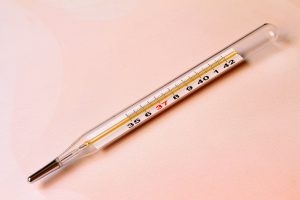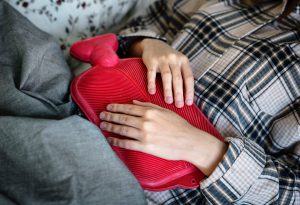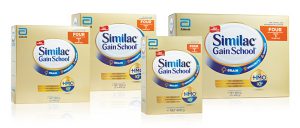Last night your preschooler was feeling down with a slight fever and didn’t put up a fight when you put him to sleep for the night. This morning, he’s his usual ball of energy self with no hint of the fever from last night. So now you’re faced with a dilemma: do you send him to school or keep him at home to be sure?
A lot of schools tell parents that sick kids should be kept at home to minimize the risk of infections. High-grade fever or incessant coughing are clear signs that your child should be kept home, but there will be times when the decision will not be so obvious. So we’ve made this checklist to help you decide if your child is fit for school or not for the day.
Fever
Fit for school: If your child’s temperature is below 37.9º, is drinking plenty of fluids, and is his normal cheery self.

Sick day: If your child’s temperature exceeds 37.9º, is lethargic, and doesn’t seem well enough to participate in any activities. Kids with fevers are considered contagious, so a lot of schools require kids to stay home when they’re running a temperature. Hence, it’s best to keep your child at home until he’s fever-free for at least 24 hours, and is back to his normal self.
Colds, runny nose, or congestion
Fit for school: If your child is eating, playing, and is still his happy energetic self in spite of a runny nose. Just be sure to send him off with some extra tissue, fluids, and hand sanitizer.
Sick day: If aside from a runny nose, your child is also dealing with a loss of appetite, lethargy or is more fussy and moody than usual. If you’ve noticed that he’s also wheezing or having difficulties in breathing, then its best to visit your pediatrician. You can send your child back to school as soon as he’s feeling better and is back to his normal self. Colds and the flu are most infectious for the first few days, so once he starts exhibiting the symptoms, he’s most likely not contagious anymore.
Vomiting
Fit for school: If he’s vomited or heaved once in 24 hours, which means the vomiting is not a sign of another infection and he’s not at risk for dehydration. Kids sometimes heave or vomit due to some leftover mucus, which is not really a good enough reason to miss school for the day.
Sick day: If your child has vomited more than two times in 24 hours. Especially if he’s exhibiting symptoms of dehydration: he doesn’t urinate frequently, his urine is dark yellow, and doesn’t produce a lot of tears when he cries. In such instances, try to keep him hydrated by frequently offering small amounts of fluid. At the same time, don’t automatically send him back to school once his vomiting stops. And if he doesn’t get better in a few days, consult your pediatrician.

Diarrhea
Fit for school: If your child is a bit older, is no longer prone to accidents, his stools are only slightly loose, and as long as he feels well enough and the bathroom trips do not bother him. At the same time, if your child doesn’t pass stool within half an hour after his last meal and is generally feeling well, then he’s good to go to school.
Sick day: If your child is still a bit young, has watery and runny poop more than three times a day, is prone to accidents and has not mastered handwashing, then its best to keep them home for the day. At the same time, keep him at home if he’s also exhibiting other symptoms such as abdominal pain, fever, and dehydration. You can send them back to school once diarrhea subsides. However, it’s still best to visit your pediatrician if his diarrhea doesn’t get better in a few days.
Sore throat
Fit for school: If your child is fever-free.
Sick day: If your child is also dealing with swollen glands, fever, headache, or stomachache, then it’s best to consult your pediatrician immediately. If he’s been diagnosed with strep, let him take one day’s worth of doctor-prescribed antibiotics before sending him back to school.
Red eyes
Fit for school: If your child’s eye is only slightly pink with clear and watery discharge.
Sick day: If one or both his eyes are stuck shut, bright red, and/or oozing yellow or green discharge. Consult your pediatrician immediately and let him take doctor-prescribed antibiotics for 24 hours before sending him back to school.

Stomachache
Fit for school: If your child is active and the tummy ache is his only symptom.
Sick day: If your child’s belly seems rigid, and if he’s also exhibiting other symptoms such as vomiting, diarrhea, or fever. In such instances, a trip to your doctor is best.
No parent wants to see their child sick and missing a number of school days. And the best way to do this is by boosting your child’s immunity so he wouldn’t succumb to common kids infections. Boost your child’s immunity by giving him a glass of Similac GainSchool every day. *Similac GainSchool is the world’s first formula milk that contains Human Milk Oligosaccharides or HMO, which is typically found in breastmilk. HMO in formula milk are said to stimulate the beneficial bacteria found in your child’s gut, which can lead to stronger immunity and as much as 66% less infection. At the same time, Similac GainSchool contains additional vitamins B12, D, Folic Acid, and Zinc that further boosts immunity, plus protein for growth and development, calcium for strong bones and teeth, nucleotides for normal cell function and replication, and anti-oxidants that help protect cells. It also contains a unique combination of DHA, Lutein, and RRR (Natural) Vitamin E that can help boost your child’s brain function.

Busy moms can now easily get their child’s Similac GainSchool anytime, anywhere, thanks to Lazada. Just sign up, log in, and cart your child’s milk via the Lazada site or Lazada app, and your Similac GainSchool will be delivered straight to your doorsteps. Definitely a big help for mamas!
*All content in this article should be taken as for informational purposes only and should not be considered as medical advice. Always seek the direct advice of a medical professional for any health issues or concerns.
Published with Similac GainSchool.
References: Parenting, WebMD, Similac GainSchool PDF File





